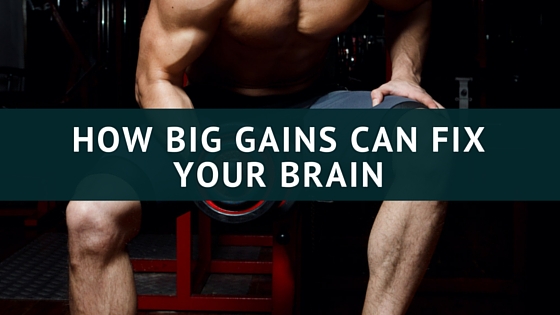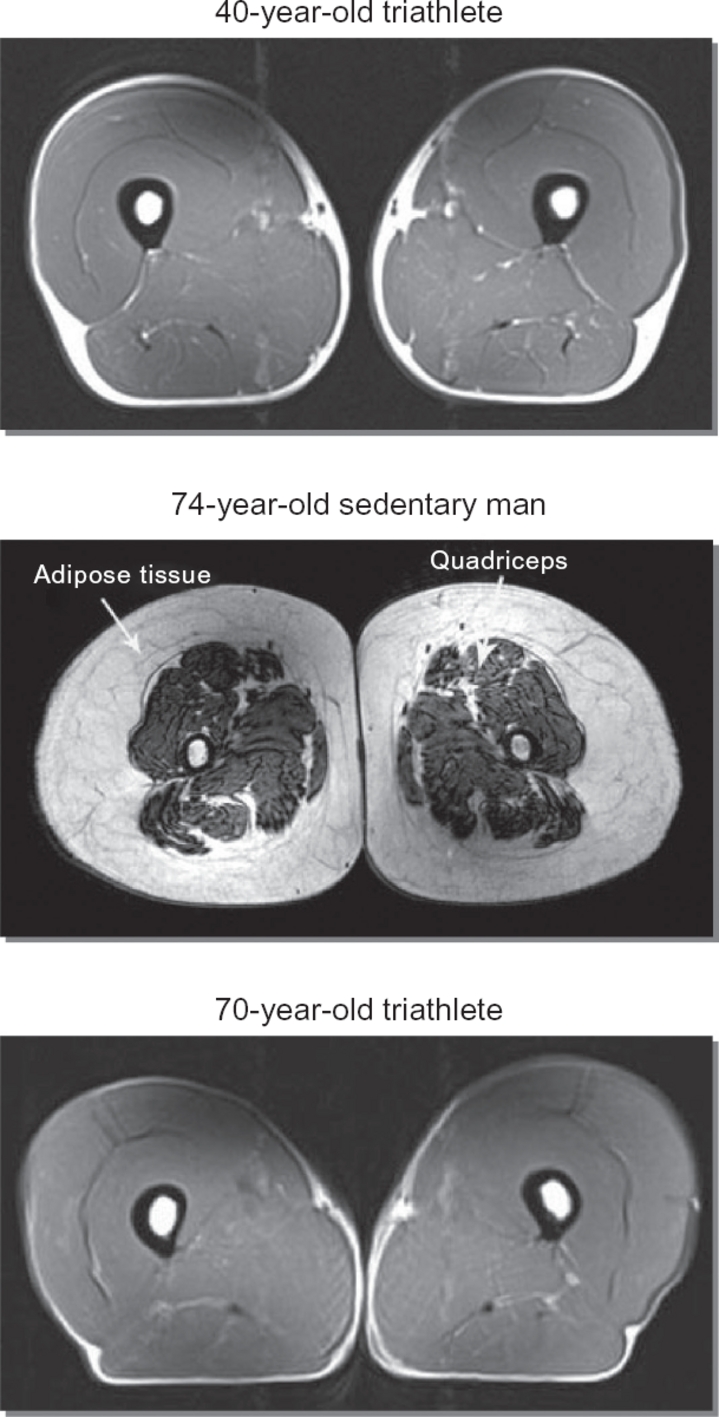How Big Gains Can Fix Your Brain

Read Time: [7-10 minutes]
Outline:
- Exercise is a strong anti-depressant but the mechanisms were unclear as to why
-
PGC-1α1 is a gene well known for muscle growth, but is now showing an anti-depressive effect
- How does PGC-1α1 protect your brain?
- Important Notes
It’s no secret that exercise is an effective way to deal with depression. In fact, the prestigious Cochrane Database showed that exercise can have just as strong an effect on depressive symptoms as anti-depressants and psychological therapy.
While long distance running seems to be the tool of choice for most people to fight the depression bug, there may be a role that resistance training can help as well. A recent study gives us a big reason to believe that muscle can be a powerful defender for brain health.
More Than Meets the Eye
We once thought that muscles were dumb tissues that obeyed the bidding of the nervous system. In recent years, researchers are showing that muscles can act like a gland in the endocrine system and release chemicals that manipulate your body chemistry.
Exercise causes muscles to produce a compound called PGC-1α1 (pronounced PGC 1 alpha 1). The name is not as important as what this compound does. PGC-1α1 plays a big role in muscle physiology. Every time you exercise, the genes that produce PGC-1α1 become upregulated to help the muscle prepare grow and become stronger. Some of it’s functions include:
- Blood vessel formation to support muscle conditioning
- Mitochondria formation for increased energy production
- Help form more neuromuscular junctions (places where nerves meet muscle tissue)
That’s all well and good, but that only describes the effect on muscle tissue, but what about the effects on the brain?
A 2014 study in the journal Cell showed that PGC-1α1 helps to protect against a chemical that causes stress related depression.
How Does It Work?
Whenever your body is under stress or a heightened state of inflammation, your liver produces a compound called kynurenine (Kin-your-eneen) into your blood stream. Unfortunately, kynurenine is a proinflammatory molecule that is capable of passing the blood-brain barrier.
Generally speaking, your brain tissue hates inflammation, and inflammation in the brain is linked to clinical depression. If your blood-brain barrier can’t keep kynurenine out, then the body needs a different way to deactivate this chemical compound.
That’s where your muscles come in with PGC-1α1 to save the day. The image below comes from the article and shows the impact that exercise has on muscle and PGC-1α1.

Image from Cell Journal
http://www.cell.com/cell/abstract/S0092-8674(14)01049-6
PGC-1α1 produces a compound called KAT (kynurenein aminotransferase). KAT acts like a filter for kynurenine and turns it into a harmless chemical. It’s like a built in detoxification system.
When the authors studied this in rats, they found that rats who were unable to produce PGC-1α1 while being exposed to chronic stress showed increased depressive behavior, while the control rats were protected.
Obviously you’re not a rat so how do we know this applies to humans?
Kynurenine has a long track record of causing problems in the brain which include diseases including Huntington’s Disease, schizophrenia, and depression. This review paper summarizes the effect of Kynurenine in all mamallian brains, including humans.
We also know that reduced PGC-1α1 production in humans is associated with cancer, diabetes, and other metabolic disease. We also know that PGC-1α1 tends to decline as we age which may help explain why aging can impair brain function as we get older.
So how do we know that exercise can reduce the effects of kynurenine?
A group of willing volunteers (college students) signed up to have their leg muscles to be biopsied. Because only college students would willingly have a scientist put a needle in their leg and extract some muscle tissue for $20.
After putting them through a 3 week exercise regiment, they biopsied the muscles again. The result?
- Muscles showed an increase in PGC-1α1
- Muscles showed an increase in KAT to help break down kynurenine
Great! So far so good. Now the studies on PGC-1α1 are primarily associated with endurance training in humans and mice. Treadmills and cardio….the nemesis of most weightlifters. Can muscle building and strength training derive these brain sparing benefits?
Big Gains to Help Your Brain
PGC-1α1 has a cousin named PGC-1α4. A study in the same journal showed that PGC-1α1 is associated with endurance while PGC-1α4 shows up during weight training. PGC-1α4 is what starts the process of hypertrophy and muscle gain. [Source]
Although the study was focused on PGC-1α4 expression, the authors also found that resistance training increased PGC-1α1 too! In fact, when you COMBINED resistance and cardiovascular exercise (like one might see at Crossfit), then you have the greatest production from these genes.

Chart from study http://www.ncbi.nlm.nih.gov/pmc/articles/PMC3520615/
Arrows are my own insertion
So resistance training and muscular gains are associated with the production of this compound that fights depression. Best of all, if you combine the two, then you may get even better protection.
Important Notes
- Depression is a multifactorial disease. Just because you exercise and are muscular doesn’t mean you you won’t suffer from depression. However, as with every lifestyle modification, it never hurts to stack the deck in your favor!
- This is not about blaming depressed people for not exercising. This is a call to use exercise as a treatment to help fight a known chemical cause of depression.
- If increased muscle is protective against brain inflammation and we know old age is associated with decrease muscle mass, can we fight diseases of old age by simply maintaining lean muscle mass? I think it can.




Leave a Reply
Want to join the discussion?Feel free to contribute!